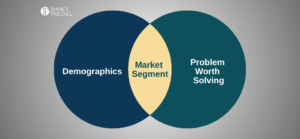Although value is a common word, in the pricing world, it has three distinct meanings. Whenever we hear a customer use the word “value”, we need to be certain which meaning they’re thinking of.
The first two meanings of value relate to the concepts of “Will I? and Which one?”, the two decisions consumers make when considering a purchase. These two meanings consider the value of a product before considering the price. The third meaning, deal value, is the value perceived after considering the price.
Identifying the Different Meanings of Value
Let’s look at the three meanings using examples.
1. Value in Use
How much do you value air? Air is essential to breathing, and breathing is essential to life. Although it’s free, you would probably pay a tremendous amount for air if absolutely necessary – it has infinite value to you. Similarly, how much do you value driving to work? You could walk, ride a bike, or take a taxi instead. This type of value best fits in the “Will I?” customer decision. “Will I buy a car?”, as opposed to, “Which car will I buy?”. Another way to think about this is how much value you’ll receive from buying a specific type of product.
2. Value in Choice
If you are deciding between a Ford Taurus and a Toyota Camry, and the Ford Taurus costs $30,000, then how much would you be willing to pay for the Camry? In other words, how much do you VALUE the Camry, in comparison to the Taurus? This is an example of the “Which one?” decision. How much do you value one product over another? Value in choice is how much you are willing to pay for a product, knowing the price of the next best alternative. This is also the typical meaning implied in the phrase Value Based Pricing.
3. Deal Value
The final definition, deal value, refers to the value of the combination of product and price. For example, after you purchase your new Taurus, you might say to a friend, “This is great value”, meaning you felt like you got a great deal. Conversely, you might also say you didn’t buy the Camry because it wasn’t good value. This third definition relates closely to what you expected to pay for the product; this is also referred to as a reference price. When you decide a product you bought is a ‘great value’, it means the price was much lower than your reference price (what you expected to pay).
The action you can take today
Look in the Wall Street Journal or New York Times for the word “value”. Which of these three meanings is implied by the way it’s talked about? Do this exercise internally when speaking with your customers, too. When your customers use the word value, you want to quickly determine their implied meaning so you can provide the proper response.















